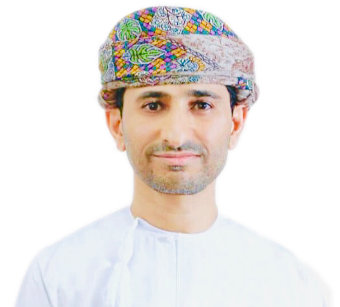
 Request An Appointment
Emergency Contact
Request An Appointment
Emergency Contact
On 18 JUNE 2020 |
Congenital Heart Diseases (CHDs) contribute for about 1% of total newborn deliveries which means in every 100 new deliveries, there is one newborn that will have congenital heart diseases. It is important to diagnosis CHDs very early in order to get proper timely treatment before it starts developing complications.
Types of Congenital Heart Diseases.
There are two types of congenital heart diseases:
a) Cyanotic Heart Disease: It causes bluish discoloration and contributes for almost 30% of total congenital heart diseases and is usually complex and associated with Hypoplasia (incomplete development) of one or more chambers of the heart or may absence of one of the main valve in the heart. These kinds of diseases are usually complex and require complex heart surgeries.
b) Acyanotic Heart Diseases: It doesn’t cause bluish discoloration and contribute for almost 70% of congenital heart diseases. Examples of such diseases are holes between the atrial and ventricular septum and stenosis in pulmonary and aortic valves.
Signs and Symptoms of Congenital Heart Diseases.
a) Shortness of breath in which the mother notices that the child is breathing fast compared to other normalchildren. Additionally, these children usually have recurrent chest infections and sometimes need to be admitted in hospital to treat the infection.
b) Interrupted feeds while breastfeeding. The mother finds out that herchilddoes not complete his breastfeeding and usually takes longer time to complete breast feeding compared to other normal children.
c) Not gaining enough weight; mother notices that her child does not gain weight. For example, at the age of 1 year normal children should be 10kg but children with congenital heart diseases usually have lesser weight compared to normal children.
d) Bluish discoloration in children.
e) Detection of heart murmur on routine examination by pediatrician in which child will be referred to pediatric cardiologist and then cardiac diseases will be detected using special instruments.
What Causes Congenital Heart Diseases?
There are no specific reasons for CHDs but there are many associated factors which could contribute to these diseases. These factors could be related to the mother or child. The maternal factors are diseases during pregrenacy. Researches have shown that pregnant women with diabetes will have 5 times more chances to have a child with associated diseases and also congenital heart diseases. Another factor could relate to some medication taken by mother during pregnancy. Additionally, exposure to radiation was found to increase risk of congenital heart diseases. Also, mother’s exposure to viruses ‘particularly during early period of pregnancy.In child factors, it was found that children with genetic problems particularly that is associated with chromosomal anomalies are more vulnerable to have congenital heart diseases. Children with Down, William and Turner syndrome usually have more chances to have congenital heart diseases.
Diagnosis of Congenital Heart Diseases.
There are many ways to do diagnose CHDs.Firstly, we need to start with medical history and then do the physical examination in which we may some findings like cardiac murmur. It is also important to measure the oxygen saturation to make sure the child maintain normal oxygen saturation. Most of the times we need to use echocardiography to diagnosis congenital heart diseases and it can help most of the times to establish the diagnosis. In some cases we need to use further imaging to clarify complex heart anatomy like cardiac magnetic resonance (CMR) and cardiac CT. Cardiac Catheterizationsometimes is also used for diagnosis and intervention as well.
Treatment of Congenital Heart Diseases.
Most of congenital heart diseases do not require any treatment except follow up. Sometimes we need to start some medications. Cardiac Catheterization sometimes is needed for some diseases such as to relive valvular stenosis. In some complex cases cardiac surgeries will be required for treating some CHDs.
Dr. Abdullah Al Bulushi, MD, DCH, CABP, FSCMR is Consultant Paediatric Cardiologist & Cardiac Imaging at Badr Al Samaa Hospital, Ruwi. For more information and appointments; Book an Appoint in website or call 99031912 or 24799760.

Dr. Abdullah Al Bulushi
BSc, MD, FSCMR
Consultant Paediatric Cardiologist & Cardiac Imaging

​This fictional story seeks to answer the mo...

​Common skin problems like acne, wrinkles, a...

Twelve year old Riya* was a loner. She didn’...

What is Nipah Virus Infection?The Nipah Virus (NiV...
Very informative
5 years ago Rajeev